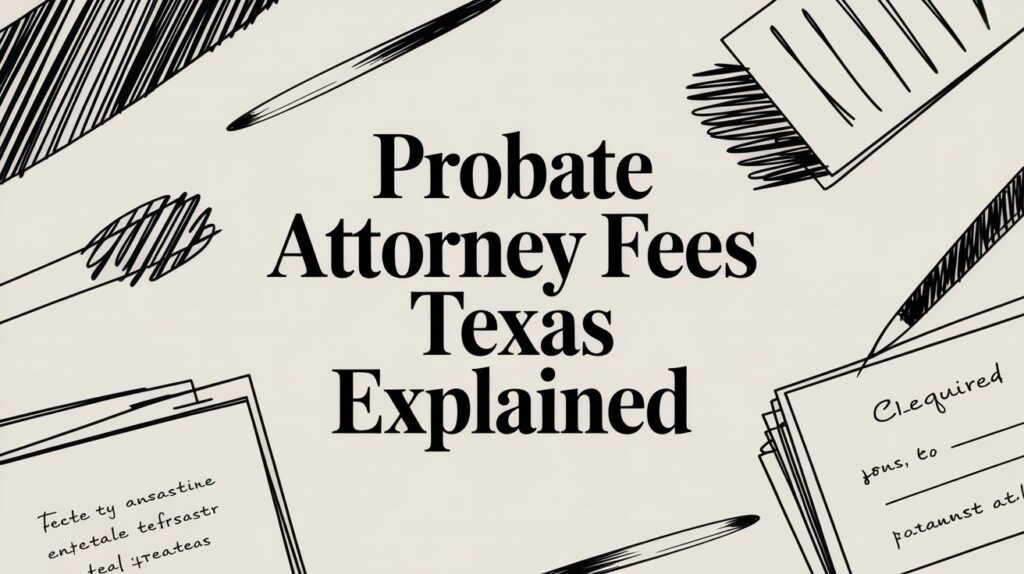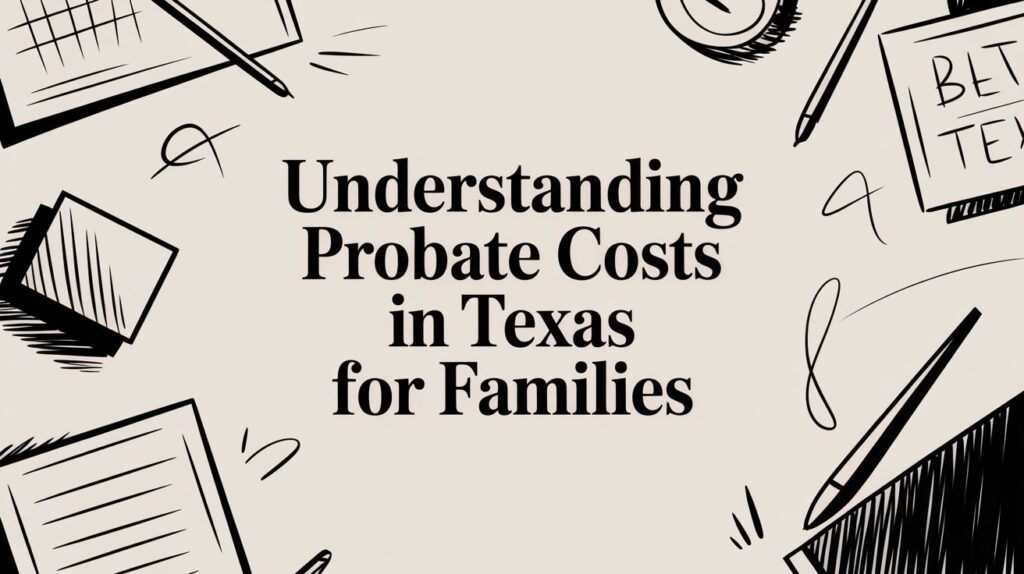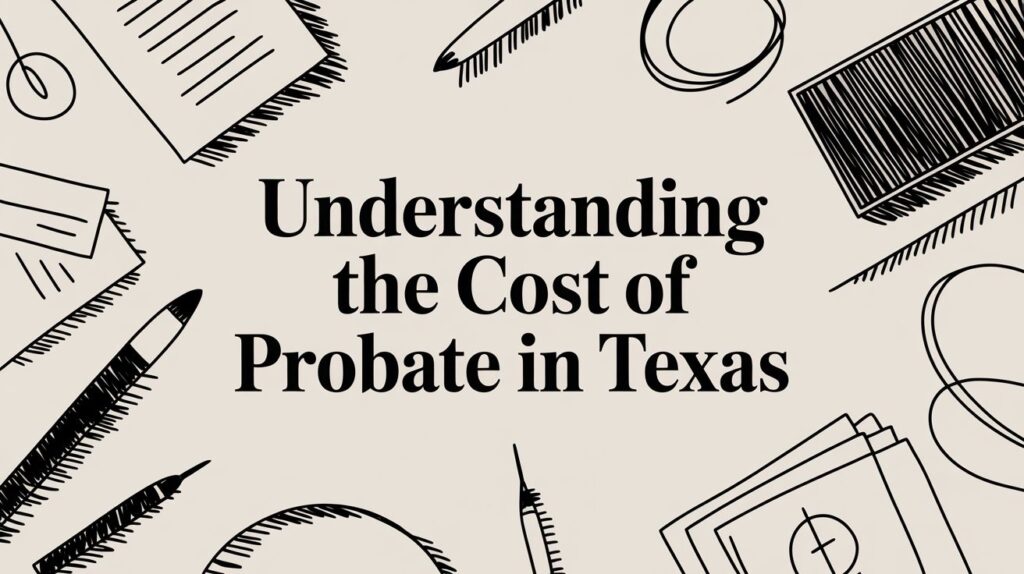If you’re wondering, can you represent yourself in probate court in Texas?—you’re not alone. Many Texans, especially when facing straightforward estates or tight financial circumstances, consider going it alone in probate court. Technically, yes, you can represent yourself. But before you dive into probate court paperwork with confidence, it’s important to understand the risks, limitations, and very real consequences of missteps in this complex legal process.
From a distance, probate might look like paperwork and court appearances. But underneath the surface, it’s a maze of deadlines, statutes, procedural traps, and potential disputes—all of which can quickly go sideways without legal guidance. This article walks you through what it really means to represent yourself in probate court in Texas, where you legally can (and cannot) act pro se, and what can go wrong if you’re not fully prepared.

What It Means to Represent Yourself in Texas Probate Court
In legal terms, representing yourself is called “pro se representation.” Under Texas law, individuals have the right to represent themselves in civil matters, including probate—but only under specific conditions. That distinction is crucial, because probate court doesn’t operate like a typical civil court. You’re not just representing yourself—you may be managing the estate of someone else. And that comes with limitations.
The Big Caveat: Acting on Behalf of an Estate Is Not the Same as Acting for Yourself
This is where most people get confused. If you’re simply trying to collect your inheritance or file a small estate affidavit, representing yourself might be allowed. But if you’re trying to administer the estate, file a will for probate, or act as an executor or administrator—you’re not just representing you. You’re representing the estate, which under Texas law, is a separate legal entity.
In most counties, non-lawyers cannot represent an estate in court, even if they are the executor or administrator. Why? Because doing so constitutes the unauthorized practice of law.
So while the answer to can you represent yourself in probate court in Texas is technically “yes,” that answer changes depending on your role in the case.
Real-Life Story: The Cost of Self-Representation Gone Wrong
Let’s talk about Rosa, a retired teacher in Houston. When her sister passed away, Rosa was named executor in the will. Wanting to save money, she decided to handle the probate herself.
She filled out forms from the county website, filed them, and attended a brief court hearing—only to find out she filed in the wrong court. Worse, the will wasn’t self-proved, and she hadn’t brought witnesses to testify about its validity. The court dismissed the application, and Rosa had to start over.
Months later, Rosa was sued by one of her nephews for mishandling estate funds. Without legal representation, Rosa struggled to defend herself and was removed as executor. The court appointed a third-party administrator, and Rosa was later ordered to reimburse the estate.
Had Rosa hired an attorney from the beginning, she would’ve spent far less and avoided the embarrassment and stress of litigation.
When You Can Represent Yourself in Probate Court in Texas
There are situations where you can appear pro se in probate court without violating state law. These are typically limited to actions where you’re representing your own interests, not acting on behalf of the estate or other heirs.
Filing as a Beneficiary
If you’re just trying to assert your claim as a beneficiary—perhaps contesting a will or raising a concern—you can usually represent yourself in court. However, keep in mind that you’ll still be expected to follow court procedures, deadlines, and rules of evidence.
Filing a Small Estate Affidavit
Texas law allows estates under a certain value (currently $75,000, excluding the homestead) to bypass full probate using a Small Estate Affidavit. If the estate qualifies and there’s no will, you may be able to handle this without legal help.
Applying for Muniment of Title
In cases where the decedent had a valid will and no unpaid debts, Texas offers a streamlined process called muniment of title. You might be able to file this yourself—but again, only if you’re not also requesting to be appointed as executor.

When You Cannot Represent Yourself in Probate Court in Texas
Here’s the part that trips up most people: if you’re acting as the executor, administrator, or personal representative, you cannot represent the estate pro se. Texas courts consider the estate to be a separate party that must be represented by a licensed attorney.
Unauthorized Practice of Law
When you try to represent the estate without a lawyer, you may be engaging in the unauthorized practice of law. This can lead to your filings being rejected, your letters of administration being revoked, or worse, sanctions by the court.
Complex Estates or Disputes
Any estate involving contested wills, creditor claims, multiple heirs, out-of-state property, or minor beneficiaries should not be handled without legal guidance. These cases require motions, evidentiary hearings, and formal accountings that are nearly impossible to manage without a legal background.
Filing to Be Appointed Executor
Even if the will names you as executor, you cannot officially act in that capacity until the court approves your application and issues Letters Testamentary. In most counties, this application must be filed by a licensed attorney on behalf of the estate.

Why Representing Yourself in Probate Court Is Risky
So far, we’ve discussed what the law says. Now let’s look at why representing yourself in probate court in Texas is almost always a risky move.
Probate Is Procedurally Dense
Probate law in Texas is governed by the Texas Estates Code, which is hundreds of pages long and filled with mandatory deadlines, required notices, bond rules, and judicial procedures. A simple oversight—like failing to notify creditors or file an inventory—can lead to costly delays or even legal liability.
Mistakes Can Be Permanent
Probate is not forgiving. If you miss deadlines, misfile documents, or mismanage assets, you may be permanently waiving your rights—or worse, get sued by other heirs or creditors.
You May Be Personally Liable
Executors and administrators have fiduciary duties to the estate and its beneficiaries. If you mess up the process—even unintentionally—you could be held personally responsible. That means paying out of your own pocket for legal mistakes.
It’s Emotionally Exhausting
Probating a loved one’s estate is already an emotional task. Throw in legal complexity, endless paperwork, and courthouse procedures, and you may find yourself overwhelmed. An attorney can act as both a legal shield and emotional buffer during an already difficult time.
The Cost of Legal Help vs. the Cost of Doing It Wrong
Let’s talk numbers. A basic uncontested probate through an attorney might cost anywhere from $2,000 to $5,000, depending on the complexity. That might sound steep, especially when you’re dealing with funeral expenses and estate taxes.
But compare that to the costs of doing it wrong:
- Court filing fees for corrected petitions
- Fines or sanctions for late notices
- Lawsuits from creditors or heirs
- Paying out-of-pocket to fix title or deed issues
- Loss of executor rights and possible replacement
When viewed through that lens, legal representation is often the more cost-effective choice.
Real-Life Example: One Line in the Will Changed Everything
Consider Dan, whose father passed away leaving a handwritten will that said, “I leave everything to my sons equally.” Dan, thinking probate would be simple, filed everything himself.
But when the court asked for clarification—what does “everything” mean? What about bank accounts, real estate, personal belongings?—Dan didn’t have the legal tools to explain it. Worse, the will didn’t include a self-proving affidavit, so Dan needed live witnesses. The process took nine months and ended in court-appointed administration because the will couldn’t be admitted.
A probate attorney could have translated that one ambiguous line into legally enforceable action. Instead, the estate became an expensive, dragged-out process.
Alternatives If You Can’t Afford an Attorney
If your financial situation truly prevents hiring an attorney, you do have a few options:
Legal Aid and Pro Bono Services
Several legal aid organizations in Texas offer help with probate matters to low-income individuals. These services are limited but can guide you through simpler cases.
Limited Scope Representation
Some probate attorneys offer limited scope services—meaning they’ll help with specific parts of the case (like filing or document preparation) rather than representing you throughout the entire process. This can significantly reduce costs while still giving you legal support.
Law Library Resources
Many county law libraries in Texas offer probate forms, guides, and workshops. While these are not a substitute for legal advice, they can help you better understand the requirements.

Final Answer: Can You Represent Yourself in Probate Court in Texas?
Yes, you can represent yourself in probate court in Texas—but only under limited conditions. If you’re representing your own interests, or filing a small estate affidavit or muniment of title, self-representation may be feasible. But if you’re acting on behalf of the estate—as executor or administrator—you must have a licensed attorney.
The risks of going it alone are high, especially if the estate involves disputes, unclear wills, multiple heirs, or valuable property. And even in simple cases, minor mistakes can cause major legal headaches.
So while Texas law gives you the right to represent yourself, wisdom—and experience—often says otherwise. Legal help isn’t just about filling out paperwork; it’s about protecting your loved one’s legacy and your own peace of mind.








